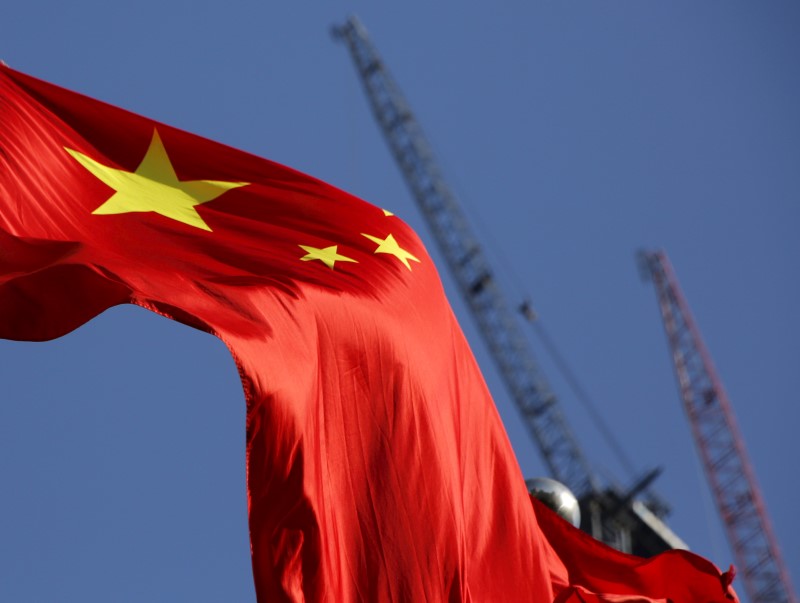(Bloomberg) -- China’s economic rebound showed signs of plateauing in September, weighed down by lackluster home and car sales, a weaker stock market and worsening business confidence.
That’s the assessment from the earliest available indicators, which showed China’s recovery is losing pace. The aggregate index combining eight indicators tracked by Bloomberg this month slipped into contraction, compared to accelerated expansion in August.
China has staged an uneven recovery, initially driven by strong industrial output yet with recent data showing signs that consumption has started to catch up. A strong and broad spurt in spending is needed for a more meaningful economic rebound.
New home sales in China’s four biggest cities slowed in the first three weeks of September, reversing August’s pickup. Small-business confidence eased marginally after rising for six straight months, while a gauge of expectations rose further into growth territory.
The pace of economic expansion moderated marginally for small businesses in September, despite continued recovery, according to Standard Chartered (OTC:SCBFF) Plc, which surveys more than 500 smaller firms each month. The growth momentum indicator eased from a month ago and the “current performance” reading retreated for the first time since March.
“This suggests that the recovery continued uninterrupted, despite signs that the V-shaped rebound is losing momentum,” according to economists Shen Lan and Ding Shuang, who published the results. “SMEs’ new orders slowed in September” and the pace of expansion of banks’ credit to SMEs also eased, they said.
Purchasing manager indexes due Wednesday are expected to show September manufacturing improved slightly while non-manufacturing moderated from August’s level.
Exports for smaller businesses remained resilient, according to Standard Chartered, with export-oriented SMEs performing better than domestically focused ones in the month.
The outlook for global trade remains more encouraging, with Korean exports in the first 20 days of September up 3.6% from a year earlier, the first rise in early trade data since March. Average daily shipments from South Korea, however, offered a less optimistic picture, falling by 9.8% as the period had two more working days compared with last year.
South Korea’s exports serve as a barometer of global trade as its companies are closely linked to global manufacturing-supply chains, and it releases data quickly.
Early Indicators
From July, Bloomberg has changed some of the components for the early look at China’s economy. It added home sales in the biggest four cities, weekly car sales and inventories of steel reinforcing, while removing iron-ore prices, sales manager sentiment and property-related stocks.
Bloomberg Economics generates the overall activity reading by aggregating a three-month weighted average of the monthly changes of eight indicators, which are based on business surveys or market prices.
- Major onshore stocks - CSI 300 index of A-share stocks listed in Shanghai or Shenzhen (through market close on 25th of the month).
- Total floor area of home sales in China’s four Tier-1 cities (Beijing, Shanghai, Guangzhou and Shenzhen).
- Inventory of steel rebar, used for reinforcing in construction (in 10,000 metric tones). Falling inventory is a sign of rising demand.
- Copper prices - Spot price for refined copper in Shanghai market (yuan/metric tonne).
- South Korean exports - South Korean exports in the first 20 days of each month (year-on-year change).
- Factory inflation tracker - Bloomberg Economics created tracker for Chinese producer prices (year-on-year change).
- Small and medium-sized business confidence - Survey of companies conducted by Standard Chartered.
- Passenger car sales - Monthly result calculated from the weekly average sales data released by the China Passenger Car Association.
©2020 Bloomberg L.P.
